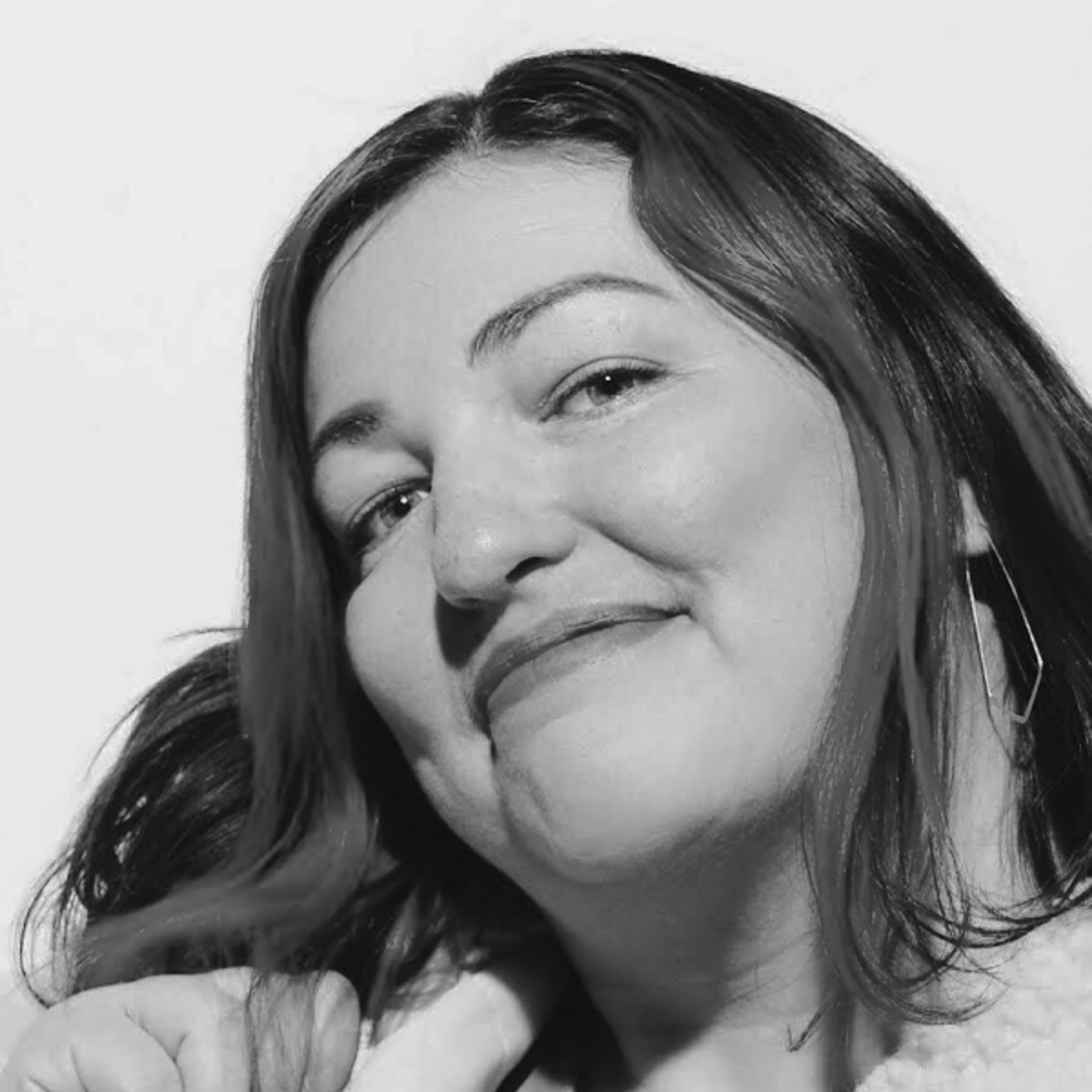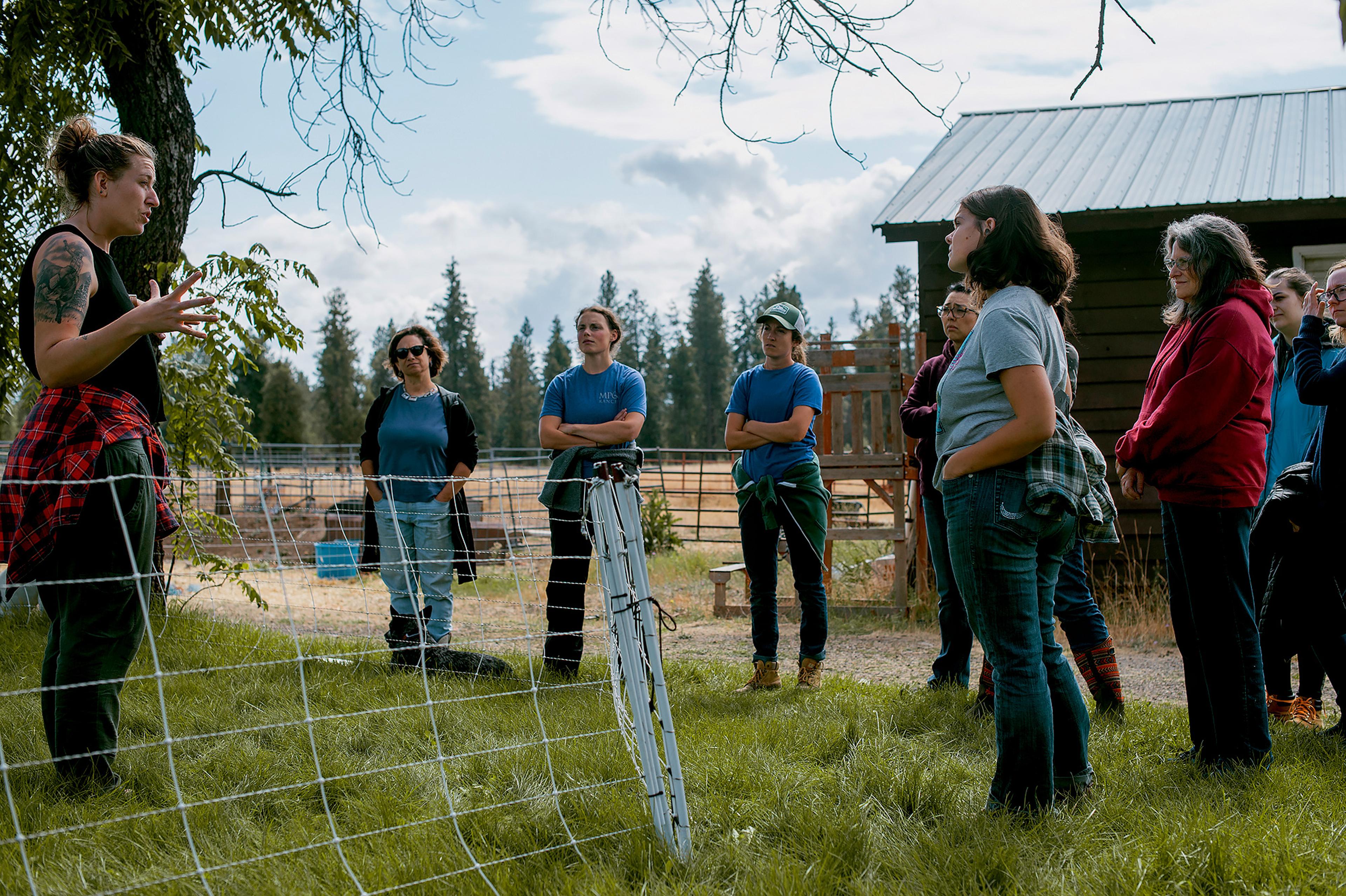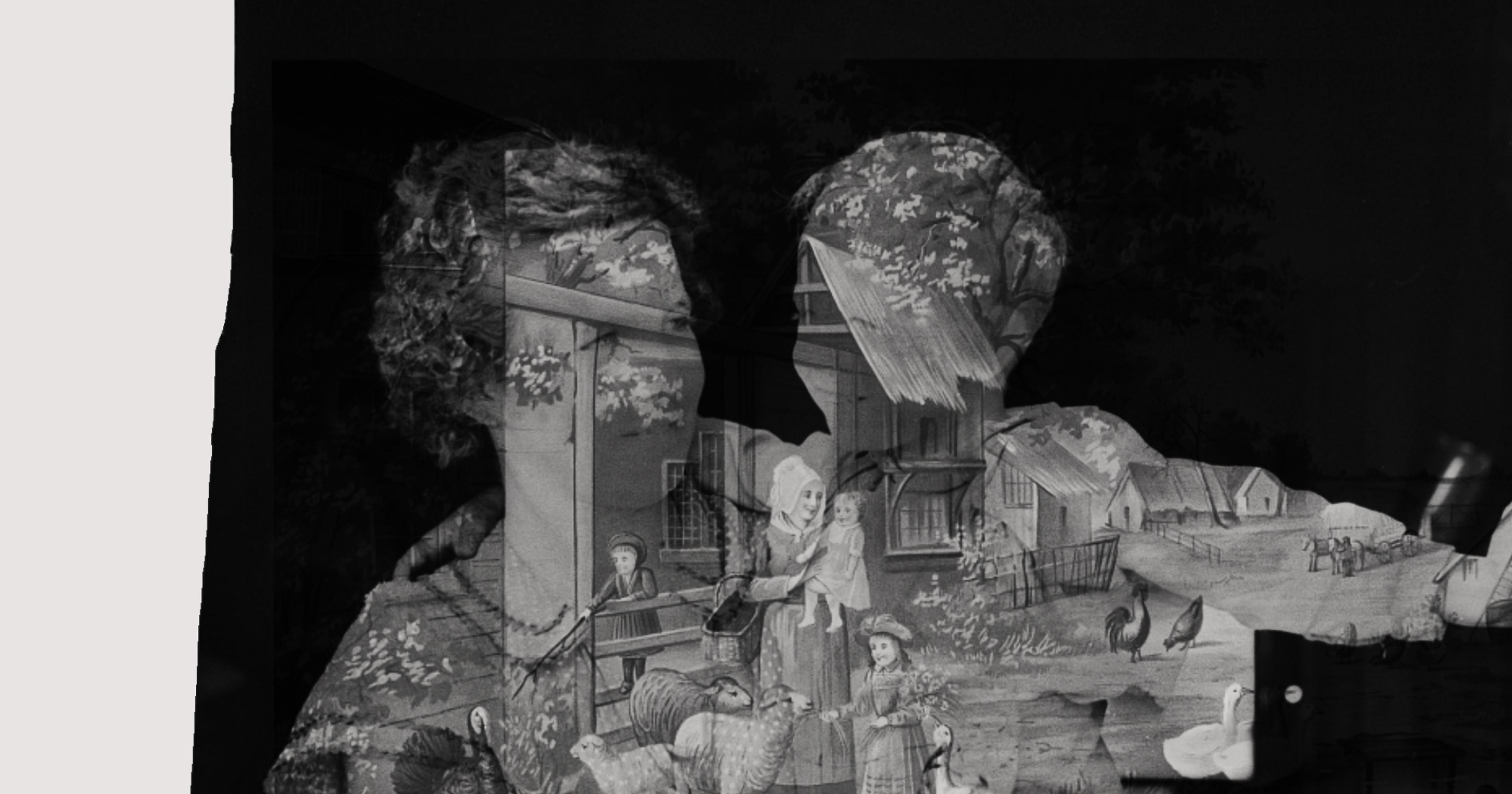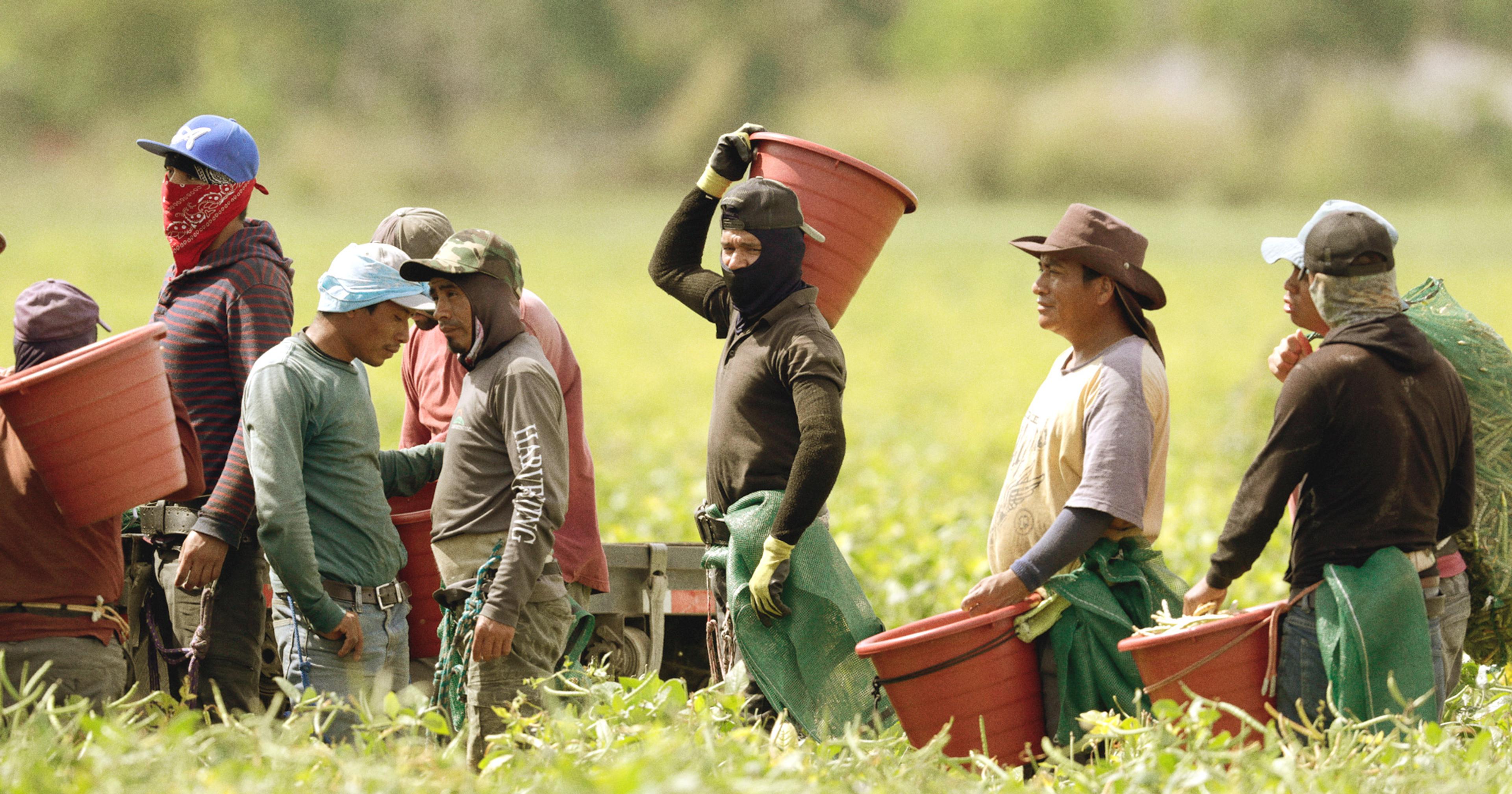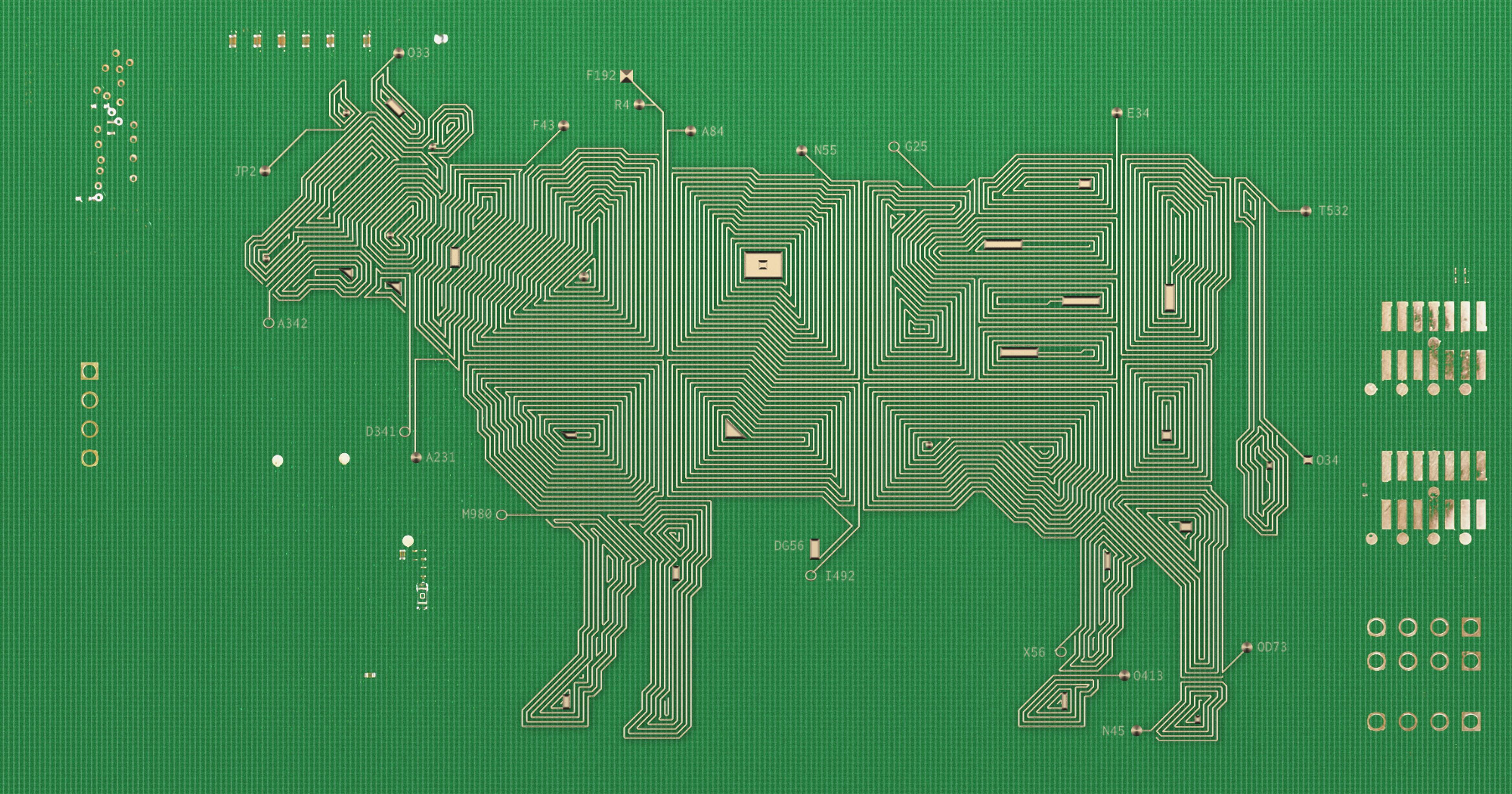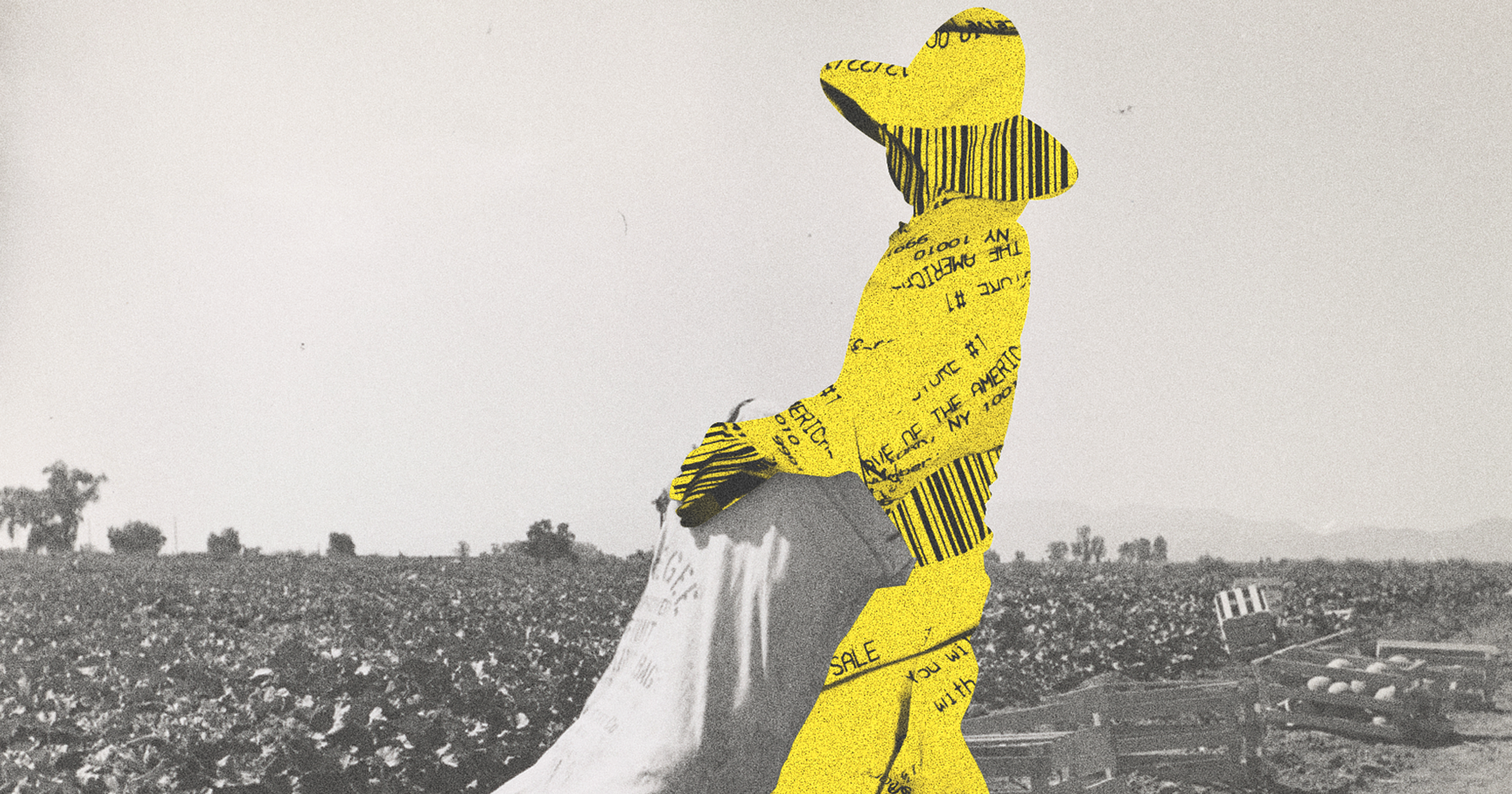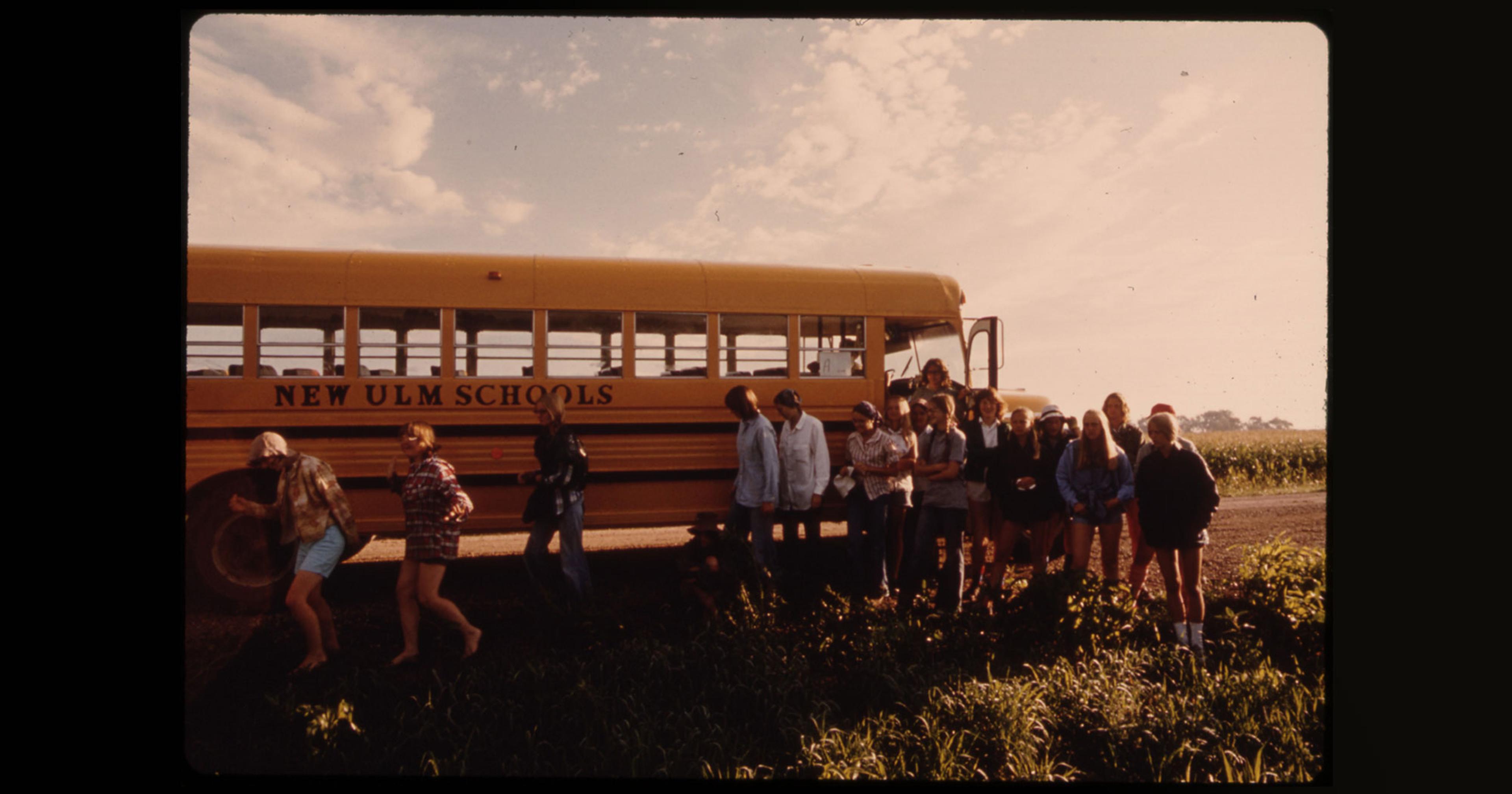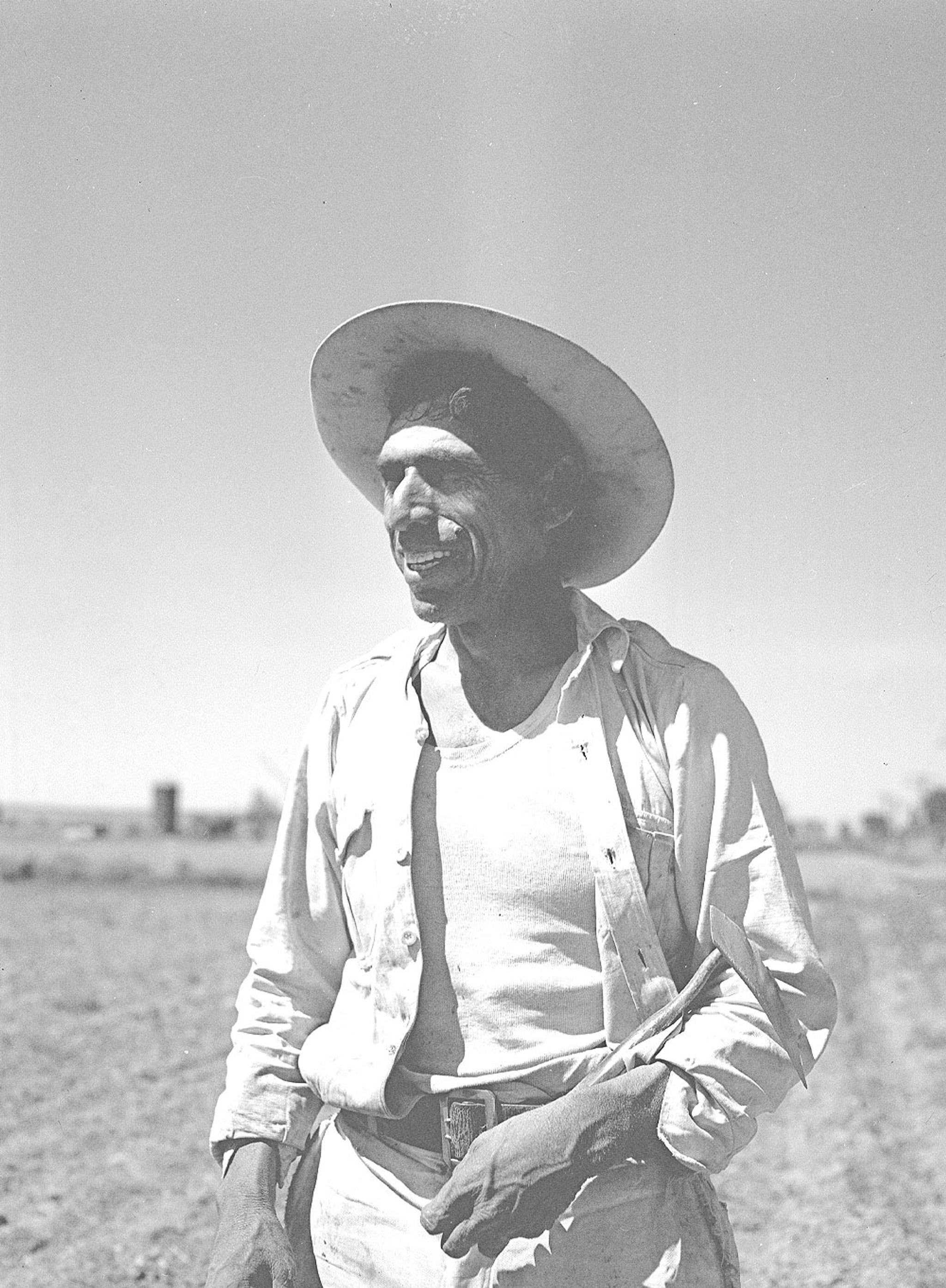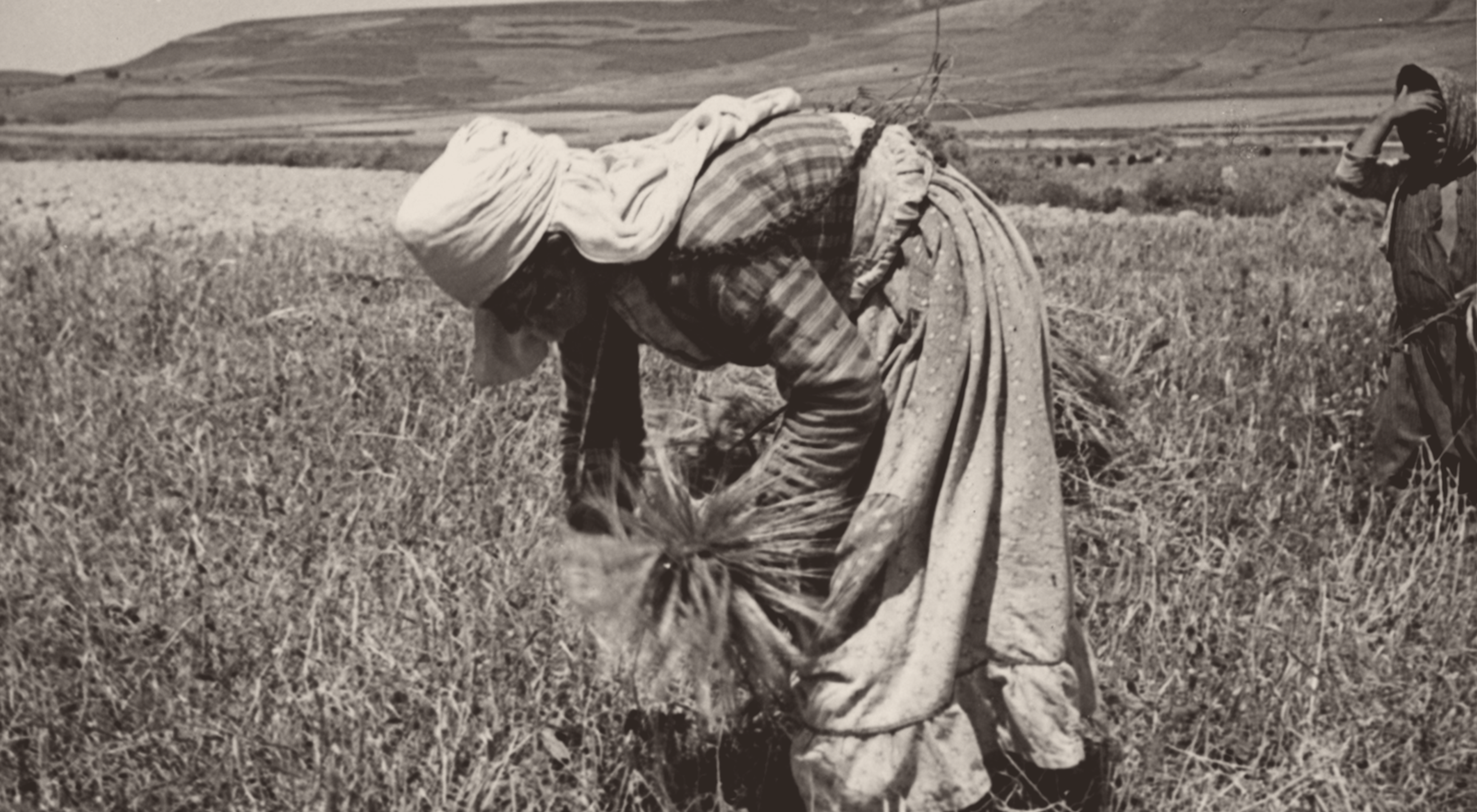New Cowgirl Camp hopes to teach women skills ranging from holistic land management to checking pregnant cows.
Growing up on her family’s ranch in Eastern Washington, Beth Robinette saw how the community of ranchers helped each other. “My dad had all of these buddies that would help him with stuff,” she recalled. They traded skills like welding and paving, and worked together when needed. But the fourth-generation rancher, who now works alongside her father, also saw firsthand how the industry fails at disseminating information to newer or younger farmers, particularly to women. “I want a cool welding buddy!” she joked.
But Robinette is dead serious about the real issue of a homogenous, aging, and increasingly insular industry. “There are already so many barriers to entry in terms of accessing land and capital,” Robinette added. “There’s all of this knowledge and there’s a lot of gatekeeping.”
To break down those gates, Robinette started New Cowgirl Camp from her own ranch, where she teaches people how to build fences — among a slew of other necessary and practical skills. The idea of the five-day intensive came directly from Robinette’s frustration with the insularity and exclusive nature of the industry and a desire to change that. In doing so, she hopes to change the future of farming.
“I have all the street cred,” Robinette said, remembering how she used to find herself belittled in interactions with other ranchers. As a young woman in the industry, she stuck out at conferences. “It was like I was a small child.”
The average age of American farmers is 57. Ninety-five percent of them are white. Much of the land they work is degrading. “The paradigm is wrong,” Robinette said. As an adherent to the principles of holistic management, she knew she had to look to the root of the issue. “If you can fix the root cause of something, then you don’t have to keep solving that problem over and over again.”
Fortunately Robinette saw a way to fix it: give rancher training to women and others who are historically disconnected from land ownership. “We have really big land management problems to solve and a huge question about who the next generation of land managers is going to be,” she said. “We need to be creating pipelines for them to move into land management.”
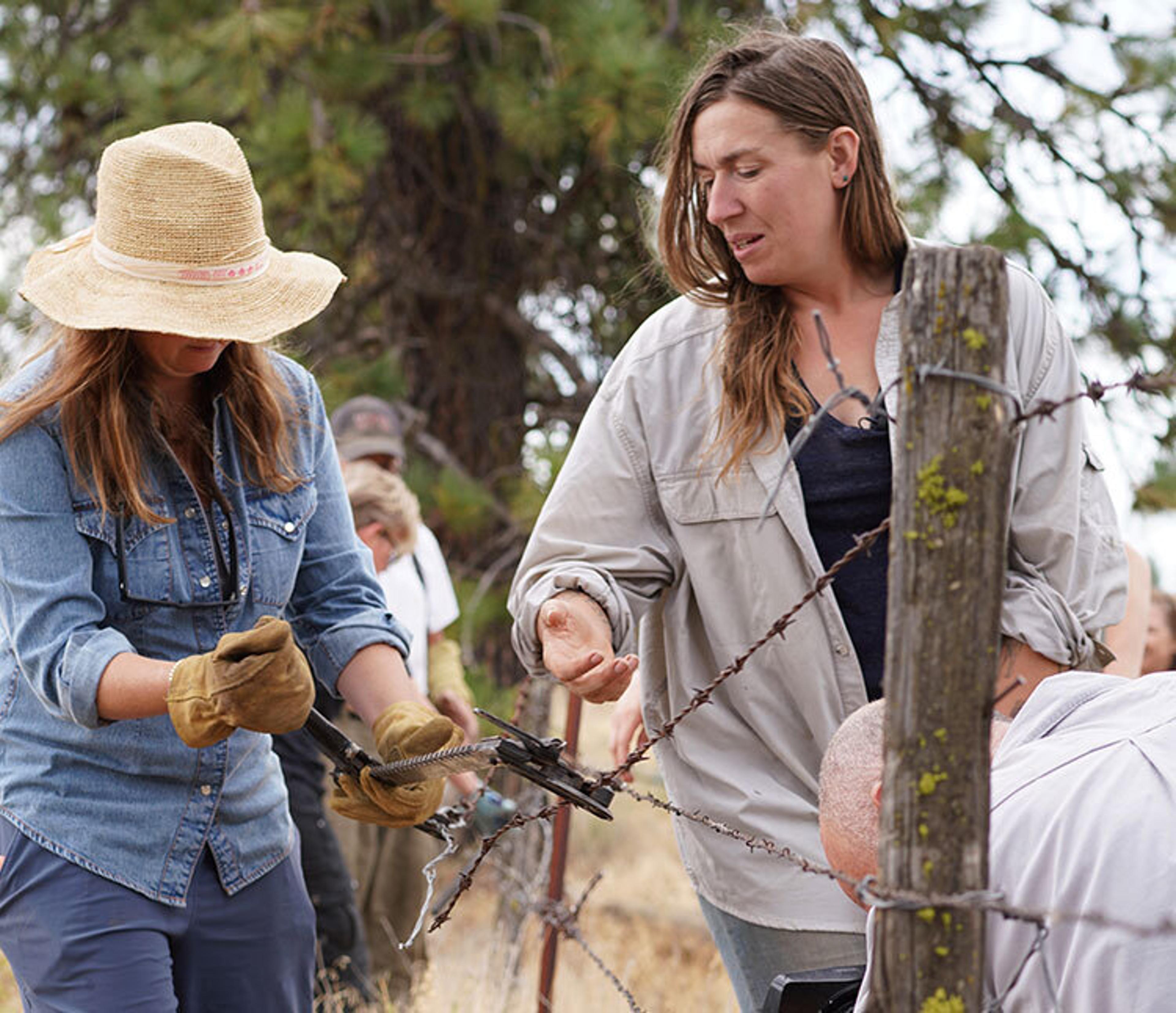
Beth Robinette teaches New Cowgirl Camp participant Kate Gundry how to use a fence stretcher.
New Cowgirl Camp, facilitated by Robinette and Sandy Matheson, a retired veterinarian and rancher, aims to do just that — to help people gain the skills and experiences typically available from family and/or the old boys’ club. While the aging farmer population is part of the issue it aims to solve, New Cowgirl Camp doesn’t focus exclusively on young people, but on opening doors for all women and non-binary people. The oldest participant of the 100 or so students from roughly 10 camp sessions was 67. The youngest was just a few months — a baby tagging along with its mother.
“I don’t think I would have been able to enter into this field any other way,” said Regan Williams, who attended the 2022 session. Williams had previously attended a different holistic land management course and found the difference palpable. Most of the people at the course either already owned land or had the resources to acquire it. Brittany “Cole” Bush, a well-known regenerative agriculture activist and educator, spoke at the course and also taught at New Cowgirl Camp. While Williams found the environment too intimidating to approach Bush at the former, the intimate and welcoming environment of camp allowed her to connect directly — with whom she now works, at Bush’s Shepherdess Land & Livestock Company.
The camp’s $1250 fee covers the expenses to run the camp, food, and kind-of boarding — participants camp out on the ranch. Scholarships from private funders and alumni cover fees for about half the attendees. The framework of holistic land management shapes the broad curriculum, looking at bigger questions such as “What is the world that we’re trying to build?” and using the concept of a triple-bottom-line to make decisions — based on environmental, social, and economic factors. Hands-on sessions teach specific skills: how to check a pregnant cow, make grazing plans, and diagnose soil.
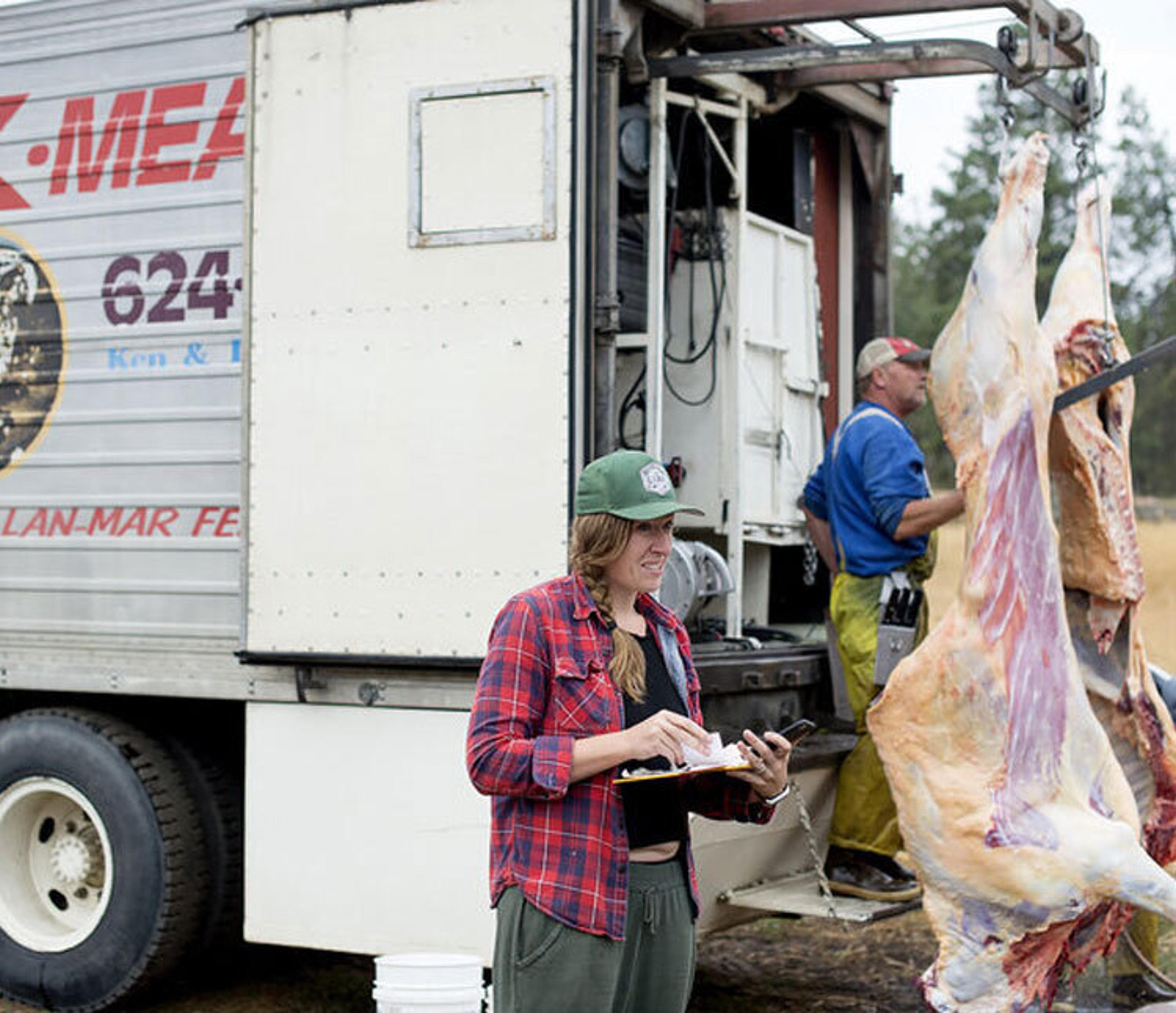
The Robinettes run a custom grass fed and beef business outside of Spokane.
“When we say, ‘Good meat comes from a certain place or certain practices,’ I wanted to see what that meant,” said website designer Kristina Glinoga. For Glinoga, a butcher at the time, learning animal husbandry from Matheson, a retired veterinarian and rancher, gave her the perspective on what that looks like in practice.
Other parts of the course were less relevant to her, but connecting with fellow aspiring ranchers was the most important part. “It was one of those moments that you don’t know that you needed something like this until you were there and you got it,” Glinoga said. Much of the group came from male-dominated workplaces — kitchens, butcher shops, ranches. “To go to a place like that and learn the subject matter in a way that was not deeply entrenched in toxic masculinity in any way, shape, or form, was so powerful and so moving, and I wish that for everyone.”
While Robinette designed the camp to disseminate information, she also aims to create the peer group she lacked and to bring in the voices she hopes guide the future of land management. “There were a handful of other people of color at the cohort I went to, and so that was super-cool to get that level of camaraderie with folks,” Glinoga noted.
Robinette isn’t sure exactly how many of the participants go on to work in the industry, but she doesn’t consider that the only form of success. A few attendees learned ranching is not for them before they get too deep. Some came in with resources that allowed them to enter or continue in the industry. Some, like Williams, found a foothold to start their career.
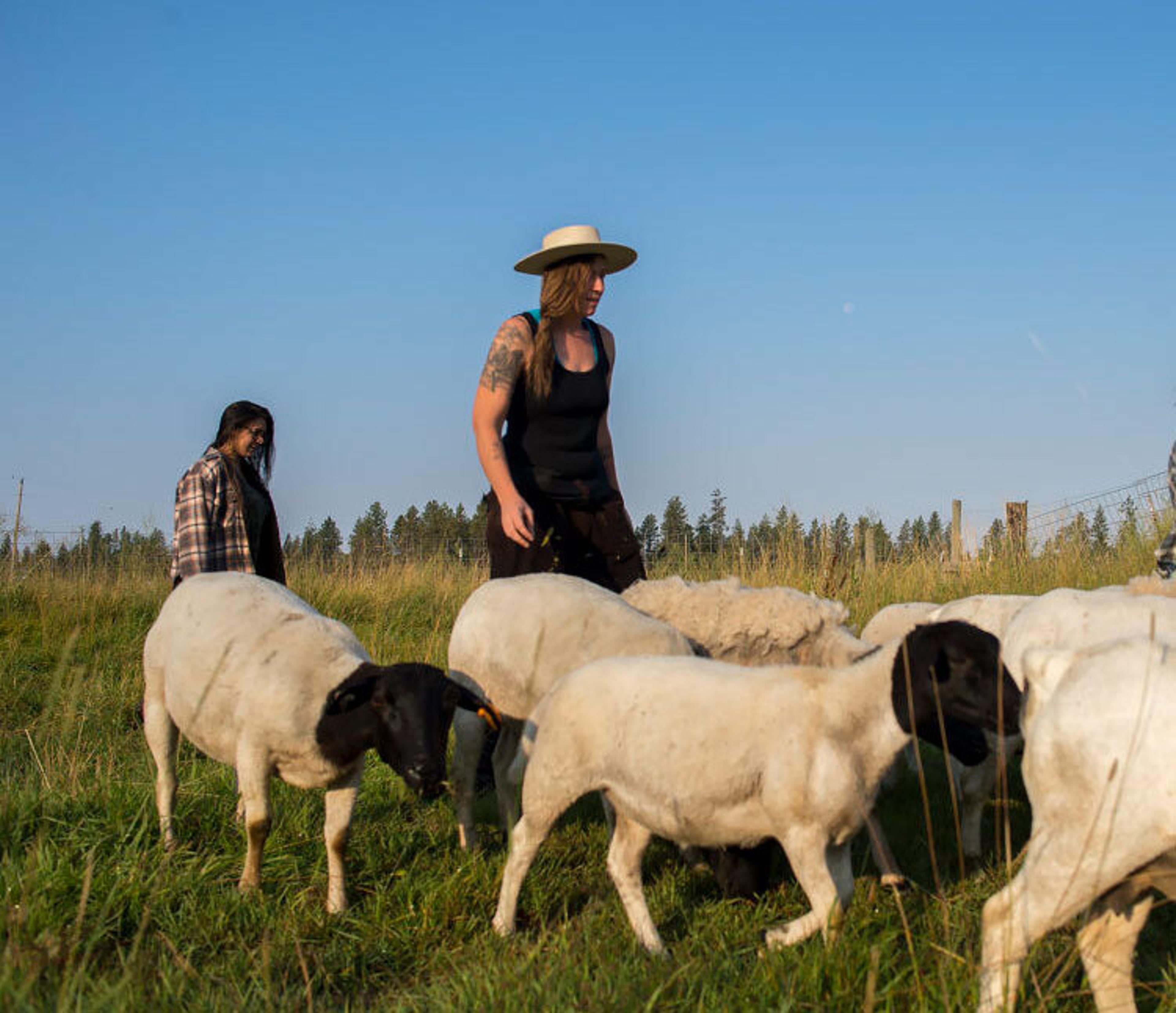
Cofacilitators Beth Robinette and Alex Machado herd sheep.
Others run into roadblocks harder than a male-dominated industry. The price of land, of housing, and the reality of living and surviving in America can still prevent people of all genders from becoming ranchers. “There needs to be more infrastructure that helps create the pipeline of getting these people on the land and actually being able to do stuff,” said Robinette. She is already working on how to advance cooperative models and what the New Cowgirl Camp 2.0 might look like.
In a country with more than three million farmers and ranchers, Robinette knows her program can’t single-handedly change the industry, but she sees it as one element in the ecosystem necessary for wide-scale revolution.
In the meantime, she sees some changes immediately: Each time a new cohort arrives for camp, she creates that peer group her father had — but better. “We’re taking that network, and we’re blowing it up times a thousand, because we have not only people who are awesome welders and construction workers and graziers, but we also have people who’ve done PR, grant management, and consensus facilitation.” While those skills might not have been valued in the traditional model of agriculture, Robinette sees them as important pieces in the puzzle of stemming the effects of climate change, ameliorating soil degradation, and shifting the paradigm with the next generation of American ranchers.
